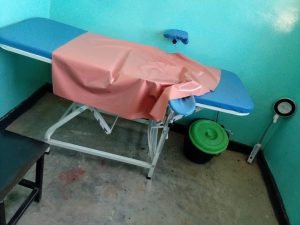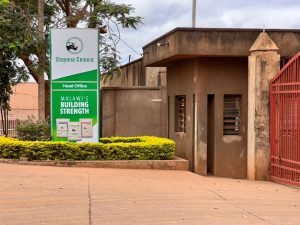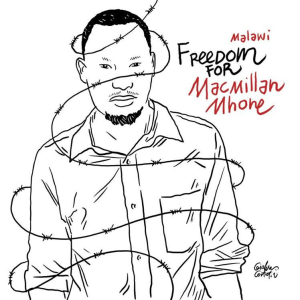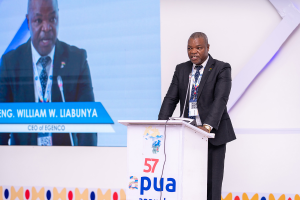MUTHARIKA DOOMES BY HIS ARROGANCE, KLEPTOCRACY

By Gregory Gondwe

Malawi’s former President Peter Mutharika and his Democratic Progressive Party (DPP) joined forces with his tribal grouping Muhlakho wa Alhomwe to replace the rule of law with free-for-all plunder of public resources.
Malawians were sick and tired of it and had one thing in mind – to show Mutharika the exit door and to overcome resistance to the High Court ruling in favour of a fresh election.
Mutharika’s regime was marked by his passive demeanour. He was never in a hurry to govern and this often led to poor service delivery. The health sector went without drugs; the education sector suffered from poor teacher welfare, and agricultural services performed badly. Even the government’s farm input subsidy programme became a political tool.
He presided over a regime that endorsed impunity and the high-level looting of all government entities. Even worse was his government’s blatant encouragement of political thuggery and disregard for the rule of law.
A few more years of his rule and the state would have collapsed.

Alleged plunder by tribal grouping and party
Those belonging to Mutharika’s tribal cabal controlled appointments to positions in government and state-owned companies, as well as who would receive lucrative government contracts.
This bred intense resentment of the regime among those outside the enchanted circle of his ethnic cronies. Such was the arrogance of the beneficiaries that they called it an “unbreakable system”.
Everyone that belonged to Mutharika’s party or tribal grouping had a permit to plunder. The chairperson of this grouping, Leston Mulli, for example, owns a company called Mulli Brothers Group of Companies and that has enjoyed favours from the government from the days of Mutharika’s late brother and former president, Bingu wa Mutharika.
The Controversial Sale of State Bank
In 2015, a year after Mutharika was elected to the presidency he sold a 75% share in state-owned Malawi Savings Bank (MSB) to FDH Financial Holdings, a Malawian commercial bank, for MK9.6-billion (US$21.1-million).
The bank, owned by Thom Mpinganjira, who would later be implicated in bribing judges.
Calls for Mutharika’s resignation started after the bank’ was sold.
Mulli Brothers never serviced its loan of MK5-billion from the bank and finance minister at the time, Goodall Gondwe, wrote off the debt, claiming that cancelling its toxic debt was necessary to sell the bank.
This year the public accounts committee of Parliament summoned the secretary of the Treasury and Attorney General to provide information on another K11-billion payout to Mulli Brothers by the government.

Alleged plunder by Mutharika, his wife, and aides
In 2018 there were more calls for Mutharika’s resignation following a leaked report by the Anti-Corruption Bureau which fingered him for receiving a kickback from a 2.8-billion kwacha ($3.9-million) contract to supply rations to the police.
The report claims a businessman deposited K145-million into an account of the ruling DPP, of which the president was the sole signatory.
The president initially called the report “fake news” and a ploy by his detractors to scupper his chances in the upcoming 2019 elections.
“I did not personally benefit in any way from the contract and that’s why I am concerned about the lack of truth. I am worried about what our country has become in as far as peddling of fake news on social media is concerned,” Mutharika told Reuters.
His office later acknowledged the existence of the DPP bank account, telling The Daily Times that the account was set up to support the party’s fundraising activities. The DPP claimed it had returned the money.
In May, Mutharika was implicated in a controversial cement deal – he had imported about 400 000 bags of cement worth K3.2-billion duty-free from Zambia and Zimbabwe between 2018 and 2019, with little explanation on why he had invested so heavily in an imported building material at the expense of the local producers.
While State House and the Malawi Revenue Authority (MRA) justified the transaction as “within the law”, lawyer John-Gift Mwakhwawa said the volume involved raised questions about the “personal use” provision in the Presidents (Salaries and Benefits) Act and called for an investigation.
Correspondence with the MRA indicated that through the director-general of State Residences Peter Mukhito, Mutharika asked the tax authorities to facilitate the clearance of the cement duty-free.

His wife Gertrude Mutharika has also proven a sharp eye for a good deal. Through the allegedly non-profit charity Beautify Malawi Trust, she received at least $300 000 in donations from foreign oil companies.
In May 2017 the “charity” came under the investigation of Malawi’s Anti-Corruption Bureau over how it got involved in the awarding of six energy exploration contracts since her husband came to power.
In July last year, she spent an estimated £80 000 on a trip to London to witness her son’s graduation ceremony.
She and a large group of aides stayed at the five-star Dorchester hotel, where rooms typically cost £700 to £900 a night, with a tariff of up to £5 500 for suites.

In July, 2019 her non-profit trust went into business, leasing out donated trucks to Blantyre City Council in a deal that violated procurement rules.
Beautify Malawi had received the trucks as a donation from the government of the People’s Republic of China in May 2016 but she leased them to the council as refuse collection vehicles a year later, at a fee of K60 000 per day. The council paid her charity K22-million in 2017.
Gertrude Mutharika is reportedly the owner of 9 houses in Area 12, 10, 43 in Lilongwe and the two in Nyambadwe and Sunnyside in Blantyre. She also owns a block of flats currently under construction in Area 43, townhouses in Area 6, and flats in Area 38.
She also has other properties held in the name of her son, and these include houses in areas 47, 49, 15, 12, and 10. Before she got married to Mutharika her only property was a rundown infrastructure in Lilongwe’s area 36 which was operating as a nursery and primary school.

Mutharika’s director of security, Norman Chisale accumulated vast wealth within a short time, including a lodge in Mangochi, several townhouses, a mansion in BCA Hills in Blantyre, a Hummer H3 silver, a Toyota Fortuner, a Toyota V8, four Mini Coopers, five Toyota quantum minibusses, a Mercedes Benz C 200, five Toyota D4D double cabins, eight Ford Rangers, four articulated trucks, three Passenger buses, two Nissan Tilda Latino, a Toyota Collora and Audi A6L.
In March this year, he boasted of having spent K50-million on the construction of a church in his village in 39 days.
He also donated iron sheeting to two other churches in his village worth four million kwacha, which he says was part of the allowance he received for a recent trip to Russia.
Days later he donated a 42-seater bus to a Sunday school choir in one of the churches he was attending, worth K35-million.
All Mutharika’s cabinet ministers have accumulated large quantities of unexplained wealth.
For example, in February this year a member of his tribe, cabinet minister Charles Mchacha, was implicated in an illegal land sale where he colluded with the Minister of Lands Symon Vuwa-Kaunda, to acquire a plot in Blantyre City.
But the procedure the Ministry of Lands used when selling to Mchacha has raised eyebrows at the Department of Forestry to which the land belonged.
Sponsored political thuggery
Mutharika’s party operated a youth wing, DPP Cadets, which was little more than a horde of roughnecks who unleashed terror on those who opposed him and his ruling clique.
They would descend on opposition rallies, assaulting, harassing, and threatening participants in full view of police officers, who looked the other way.
The country’s former vice-president, Saulos Chilima, in May, accused Mutharika, his erstwhile boss, of unleashing political violence and tribalism ahead of the June 23 presidential election to disenfranchise voters through intimidation.
The cadets assaulted members of Chilima’s United Transformative Movement (UTM), burning the vehicles of his officials.
In May this year, they burnt down a UTM office in Lilongwe where a guard and his family of six were living in a backroom. The father, his wife, and a child died as a result of severe burns while three children survived after spending weeks in a hospital.
Since the incident neither Mutharika, the political leadership associated with him, nor the Malawi Police Services made any official statement on the matter.

Albino killings implications
Mutharika’s regime was implicated in Malawi’s plague of lethal attacks on people with albinism, apparently for the sale of their body parts as medicine. According to a November 2019 Blantyre High Court hearing, a police officer arrested as one of the suspects in the murder of a man with albinism said Mutharika was part of a syndicate specialising in such killings.
The officer also implicated Hetherwick Ntaba, Mutharika’s aide and a former cabinet minister, who had been named in a previous albinism murder case.
Amnesty International has decried the longstanding impunity for the killing of people with albinism in Malawi.
“It is time for the country to break with years of impunity for the killings and mutilation of people with albinism; atrocities which remain unresolved owing to criminal justice failures and ineffective criminal investigations,” Amnesty International said on the eve of the 2019 polls.

IG appointment
Mutharika appeared to reward a police officer, Duncan Mwapasa, who was implicated in the murder of a University of Malawi student during his brother’s tenure, by appointing him police Inspector General. Parliament declined to confirm this appointment but he continued in the position in an acting capacity.
Police rapes
Malawi’s Human Rights Commission reported that police personnel had raped women, sometimes in the presence of the victims’ children, during a security operation in October last year.
This was allegedly an act of reprisal against villagers who had erected barricades to prevent a rally organized in Lilongwe by Mutharika. The police also used teargas to disperse the crowd.
The commission named officials it said should be punished. Mwapasa presided over a police service that was unwilling to respond to these accusations.
ACB made toothless
Malawi’s Anti-Corruption Bureau was hampered in its attempts to investigate wrongdoing, being starved by the government of resources, while its officers received death threats.
In 2015, the body of the ACB’s director of corporate services, Issa Njauju, was discovered half-buried in Lilongwe two days after he had gone missing. He was pronounced the victim of a “savage and brutal attack”.
The police said Njauju’s Toyota D4D vehicle was found gutted by fire. It was suspected it was carrying files that exposed the misdeeds of senior members of the DPP.
Stealing elections
As the Constitutional Court was hearing the 2019 application for annulment of rigged elections, Thom Mpinganjira was arrested on 19 January 2020 for allegedly attempting to bribe the five-member panel of judges who presided over the case. Mpinganjira wanted them to tilt the judgment in Mutharika’s favour.
Despite this, the court found the May 2019 poll was invalid because of widespread evidence of procedural irregularities and vote tampering.
The court struck down Mutharika’s victory citing evidence of voting fraud, including thousands of results sheets that appeared to have been altered using typing correction fluid.
The ruling was upheld by the Malawi Supreme Court. It recommended the removal of electoral commission chairperson Jane Ansah and her fellow commissioners.
Mutharika refused to fire her, arguing that the African Union, the Southern Africa Development Community, the UNDP, and the US government had all said the elections were fair, credible, and transparent.

Attack on the judiciary
When the Supreme Court of Appeal made its ruling, Mutharika, a distinguished and experienced lawyer, started undermining the judges’ verdict by alleging they had received bribes to favour the petitioners. He said the judiciary had colluded with the opposition to steal his government.
This prompted the International Bar Association’s Human Rights Institute to condemn the continued persecution of Constitutional Court and Supreme Court judges in Malawi by the president and his Democratic Progressive Party.
The attacks included an attempt to remove Chief Justice Andrew Nyirenda from office ahead of a new presidential poll.
The peoples’ verdict on this torrent of wrongdoing was decisive. On June 23, 2020, some 2.6 million of 4 million voters – more than two-thirds of the electorate – ushered in opposition party leader Lazarus Chakwera as the new president of Malawi.
*This analysis was produced by Malawi’s Platform for Investigative Journalism, in association with IJ Hub.





